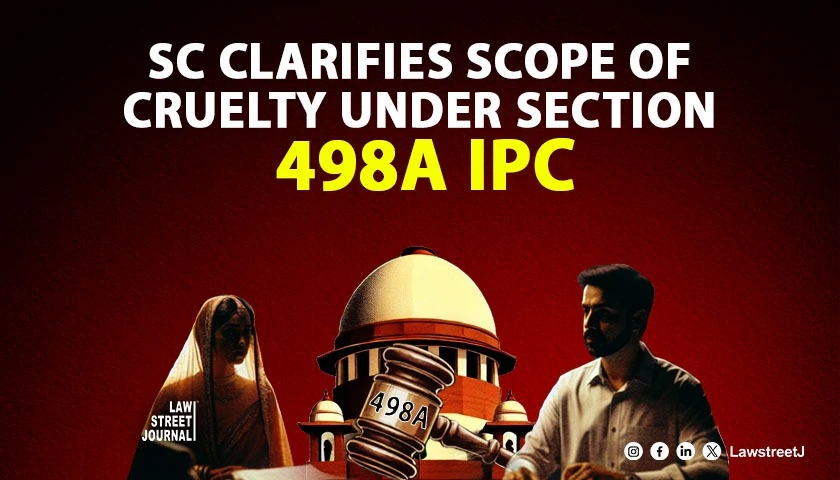New Delhi: The Supreme Court of India has issued a significant judgment clarifying the interpretation of cruelty under Section 498A of the Indian Penal Code, emphasizing that dowry demands are not a prerequisite for establishing the offense.
SC Rules Dowry Demand Not Mandatory for 498A IPC Cruelty Cases
Justices Vikram Nath and Prasanna B. Varale provided crucial interpretations while examining an appeal against an Andhra Pradesh High Court order that had quashed criminal proceedings in a matrimonial dispute case.
The court addressed a criminal appeal arising from proceedings in which a wife had filed complaints against her husband and mother-in-law. The court noted, “The definition of ‘harassment’ under the Explanation to Section 498A is specifically outlined in clause (b), independent of the ‘wilful conduct’ described in clause (a), thus necessitating a separate reading of the two.”
Supreme Court Clarifies Legal Scope of Cruelty in Matrimonial Disputes
Examining the legislative intent behind Section 498A IPC, the court observed, “The aim of introducing Section 498A in the IPC is not only to curb cruelty related to dowry demands but also to address cases of cruelty against married women by their in-laws.”
The court highlighted the dual nature of cruelty under the provision, stating, “Section 498A IPC recognizes two distinct forms of cruelty: one involving physical or mental harm under clause (a) and the other involving harassment linked to unlawful demands for property or valuable security under clause (b).”
In a specific directive, the court stated, “The allegations made by the Appellant, which detail instances of physical abuse and harassment, fall within the scope of ‘cruelty’ as defined under clause (a) of Section 498A IPC. The absence of an explicit dowry demand does not negate the applicability of the provision.”
The court emphasized that the core of the offense lies in the act of cruelty itself and is not solely dependent on dowry demands. The judgment reinstated criminal proceedings against the accused, directing the trial to proceed according to law.
Case Title: Aluri Venkata Ramana vs. Aluri Thirupathi Rao & Ors.











